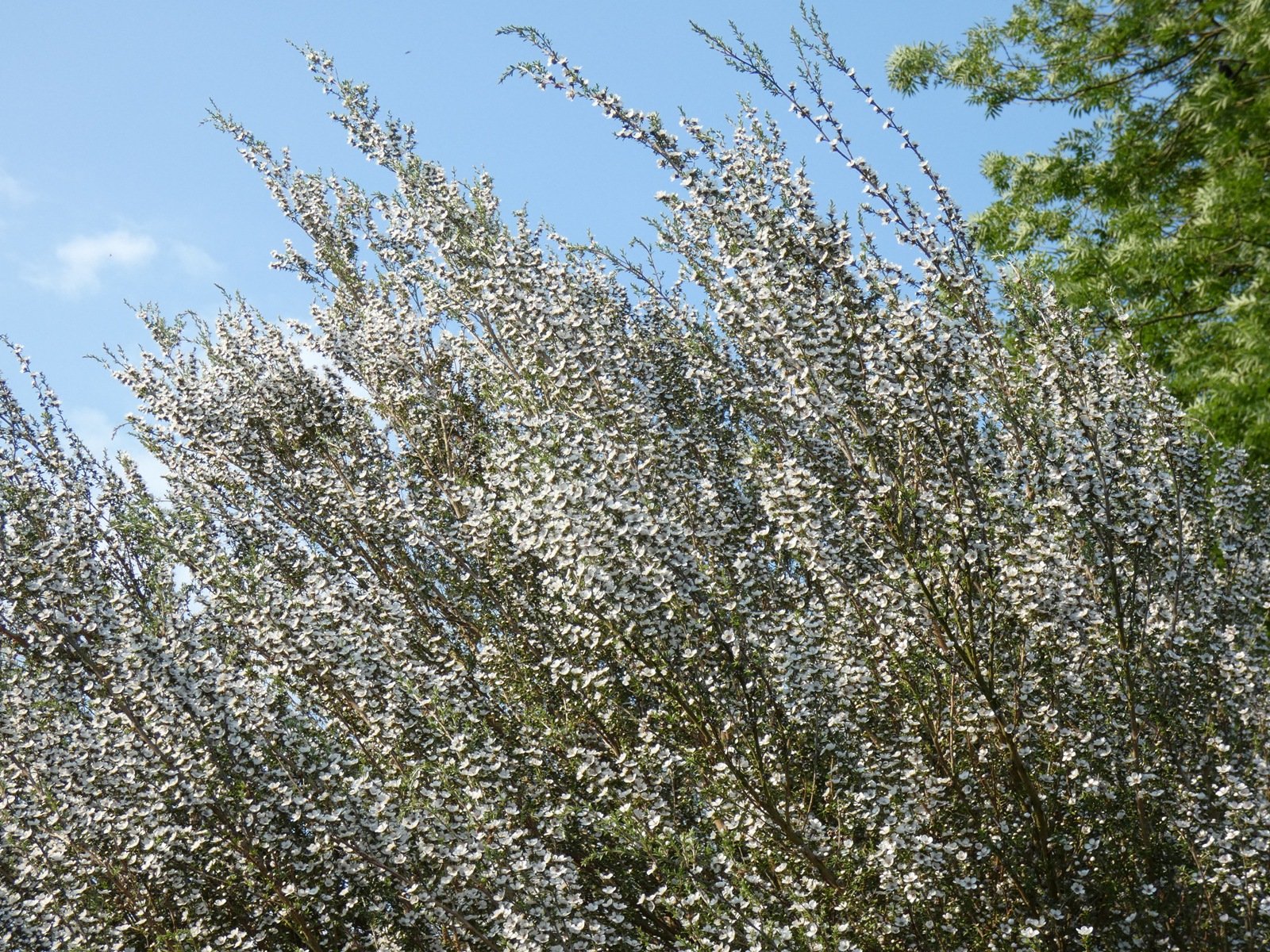Leptospermum scoparium
Manuka, alpine
Species Tolerances
- Drought Tolerance: Medium
- Shade Tolerance: No
- Waterlogging Tolerance: High
- Frost Tolerance (trees from warmer climates may be frost tolerant, but their flowers may not be): Yes
- RHS Hardiness: H6
- Optimum Conditions for Growth:
Small to medium evergreen tree or shrub. Prefers any deep soil, with pH range from acid to neutral and tolerates waterlogging. There is a wide variation in this species in its native range New Zealand, from the hardy, alpine form (that tolerates gales and snow) to the less hardy lowland form (that tolerates maritime exposure and gales). A pioneer species that cannot tolerate shade and should thrive when conditions become hotter in the British Isles, though not drought tolerant. - Susceptibility to Pest/Disease:
Resistant to pests and diseases in the UK at present

Leptospermum scoparium/ Bee Happy Plants & Seeds
Service to Pollinators
- Summary of Service to Pollinators:
The copious nectar is particularly good for honeybees in the June gap and to build up honey reserves, also helping bees fight off infections. Secretes nectar best in warm conditions. - Nectar Value to Pollinators: 3 (of 0-3)
- Honeydew Value to Pollinators: 0 (of 0-3)
- Pollen Value to Bees: 2 (of 0-3)
- Flowering Period: June
Risks
- Human Toxicity: Non-toxic
- Livestock Toxicity: Non-toxic
- Invasive Risk: No
- Suckering: No
Products
- Edible Fruit: No
- Edible Leaves: Yes
- Edible Sap: No
- Edible Seeds: No
- Honey, major source in UK: Yes
- For any medicinal potential, see 'Further Details' below.
- Timber: No
- Livestock Fodder: Yes
- Other Products:
Essential oil proven to be antiseptic, antibacterial, antiviral and moderately antifungal, the honey being more potent in these qualities than the oil. Leaves can be used to make a herbal tea, and gargle Twigs make good tooth-picks for gum health. Livestock enjoy eating young shoots.
Utility
- Nitrogen Fixation: No
- Organic Matter Accumulation: No
- Phytoremediation: No
- Deacidification: No
- Windbreak: Yes
- Soil Erosion Control: Yes
- Shade or Shelter: Yes
- Plant Support: No
- Integrated Pest Management: Yes
- Wildlife Value: Yes
- Wildlife Value Summary:
Low biodiversity value but service to pollinators is high particularly to bees, small birds enjoy nesting in its branches. - Graduated Nativeness Classification ⓘ: 9 (of 1-10)1. Historic Native
2. Historic Introduction
9. Neutral Introduction
Further Details
Manuka honey is used within hospitals and endorsed as having good antimicrobial activity against antibiotic-sensitive and antibiotic-resistant bacteria. Pharmaceuticals which make the hospital-grade Manuka dressings insist on high standards of purity without residues from chemical pesticides.